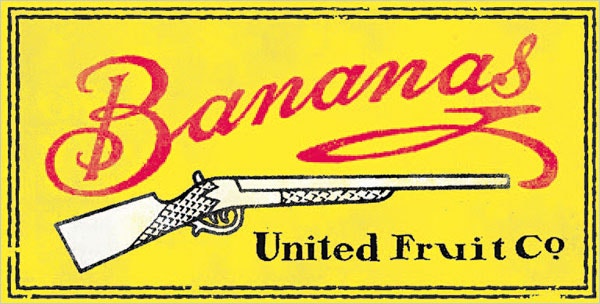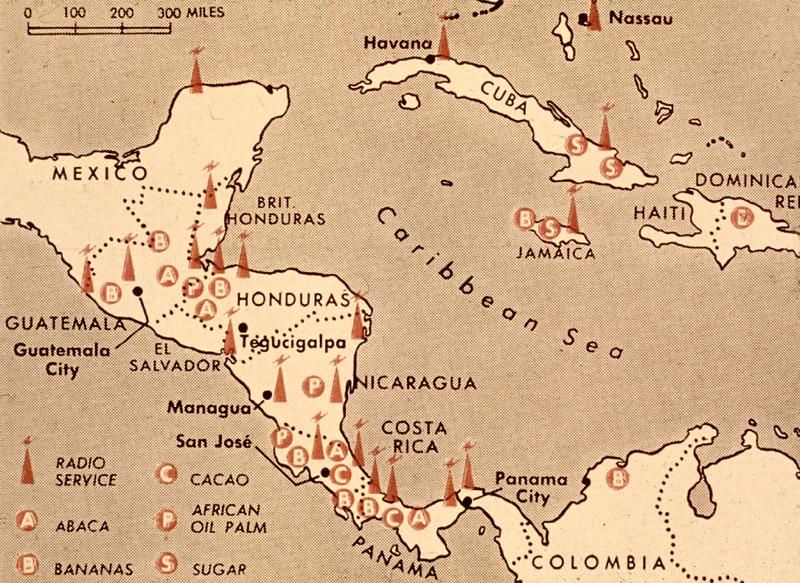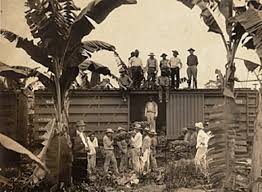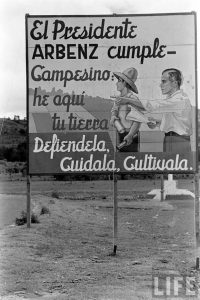The Guatemalan government gave UFCO control of the post office in 1901. Through the next few decades and into the 1930s, United Fruit had an enormous role in the economies of not just Guatemala, but a large chunk of Central America. The nation's industry was solely run, built, and maintained by United Fruit. UFCO had immense holdings in which they developed numerous radio stations. Extensive rail systems were also constructed. (Marcelo)

Logo of the United Fruit Company(Kurtz-Phelan)


